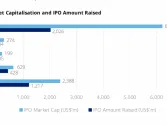
Why Indonesia's ambition of universal healthcare by 2019 will be "highly difficult"
Health insurance scheme's impact is likely to wane, analysts say.
Indonesia's objective of achieving universal healthcare by 2019 will be highly difficult. While significant progress has been made in growing enrolment into the national health insurance scheme (JKN), further expansion will be limited, according to BMI Research.
This is exacerbated by the uneven levels of healthcare access in Indonesia, which is a structural factor that cannot be fully addressed in just two years. For the pharmaceutical industry, the JKN's positive impact on growth is likely to wane over the medium term as the scheme's boost is primarily comes from higher volume sales of low-cost generic drugs.
Here's more from BMI Research:
Indonesia's pursuit of universal healthcare will remain difficult in 2017. First rolled out in January 2014, the authorities aimed to have fully enrolled the population into the national health insurance scheme by January 2019 - called the Jaminan Kesehatan Nasional (JKN) - while ensuring that 'high quality healthcare services' are equally accessible to the entire population.
Reinforcing our long-held caution on the government's ambition for the JKN , latest estimates suggest that only 66% of the population were enrolled as of December 2016. This leaves the authorities two years to expand coverage to over 80mn people in the country - a challenging outcome given the experience of other emerging markets such as Vietnam and the Philippines as they move towards 100% coverage.
Instead, we anticipate a more incremental expansion to the number of Indonesians under the JKN. This will continue to have a positive impact on the healthcare sector - dovetailing with rising household incomes, an integral driver of the overall market in value terms.
The introduction of a coordination of benefit (COB) scheme, which allows more affluent Indonesian patients to supplement coverage under the JKN with private health insurance, lends further weight to the role of private health spending to drive growth. We are forecasting healthcare spending in Indonesia to rise from IDR366,323bn (USD27bn) in 2016 to IDR1.1trn (USD70bn) by 2026, with a compound annual growth rate of 11.5% in local currency terms and 9.9% in US dollar terms.



















 Advertise
Advertise







